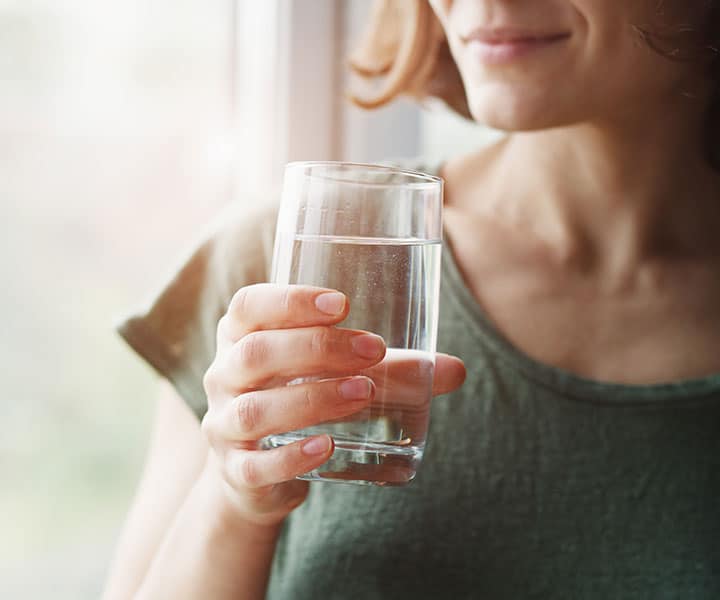What is Vulvodynia?
Vulvodynia is a condition where different areas of the vulva experience chronic, burning pain either constantly or with touch. This pain can be either localized to one area or throughout (although in different areas at different times) and regularly occurs over months or years. It’s unknown what exactly causes vulvodynia, and it has only recently been recognized as a real condition. However, it’s thought that it can be caused by nerve complications, hypersensitivity to infections or irritation, or muscle spasms.
Why is Vulvodynia Important?
Because of the chronic pain and irritation, vulvodynia can have a substantial impact on a woman’s quality of life. If you’ve experienced vulvodynia, then it’s likely that you avoid sitting for long periods of time, having sexual intercourse, or wearing certain irritating materials. These factors can severely limit your lifestyle on top of managing chronic pain and discomfort. For this reason, it’s important to know about vulvodynia and what you can do about it.
How Can My Gynecologist Help?
If you’ve been experiencing vulvodynia, then it’s important to speak with your gynecologist about your symptoms. It can be helpful for the diagnosis process to keep note of different things you’ve tried in order to manage pain so that your gynecologist can assess the possible causes. Treatment for vulvodynia usually includes avoiding irritants like certain soaps, fabrics, menstrual products, and bathing habits. Additionally, avoid putting pressure on the vulva through activities like prolonged sitting or riding a bike. Finally, your gynecologist can recommend ways to manage pain through heat or cold pack therapies or through prescribed medications to block nerve signals or pain for the long-term.
Schedule an Appointment
Vulvodynia can be extremely difficult to live with, so it’s important to remember that your gynecologist can help. To meet with our expert team about the possible causes and treatment options, contact our New York City office by calling or filling out our online form.
Frequently Asked Questions
Can endometriosis cause vulvodynia?
Many patients who have endometriosis also experience vulvodynia. However, it is unclear whether endometriosis causes vulvodynia, if the two issues have a common cause, or other factors cause them to coincide. Vulvodynia should typically be treated by a specialist; the gynecologists at Carnegie Women's Health do not specialize in treating vulvodynia.
Can HPV cause vulvodynia?
HPV itself does not directly cause vulvodynia, but it may lead to changes in the vulvar tissue or treatments that contribute to chronic discomfort. If you have HPV and persistent vulvar pain, it’s important to see a gynecologist for evaluation.
Can IBS cause vulvodynia?
While IBS may not be the cause of vulvodynia, patients will frequently have both conditions.
Can low estrogen cause vulvodynia?
Yes, low estrogen can contribute to vulvodynia by thinning the vaginal and vulvar tissues, which makes them more sensitive and prone to irritation. This is especially common during menopause or while using certain medications that lower hormone levels.
Can the pill cause vulvodynia?
In some cases, birth control pills may lower estrogen levels, which can contribute to vulvar pain or irritation. Not everyone experiences this side effect, but if you notice symptoms after starting the pill, talk with your provider about alternatives.
Can UTI cause vulvodynia?
It's possible to develop vulvodynia with repeated UTIs, yeast infections, and bacterial vaginosis. That's because they can cause the vulva to become more sensitive to pain, even when there's no infection or cause.
Can vulvodynia go away?
Yes, vulvodynia can improve or even resolve with the right treatment plan. Management may include medications, physical therapy, or lifestyle changes, and many women find significant relief over time.
Does vulvovaginitis cause sores?
Vulvovaginitis can sometimes cause irritation, redness, or small sores, depending on the underlying cause, such as infection or skin sensitivity. If you notice sores, it’s best to seek medical care for proper diagnosis and treatment.
How can I treat vulvovaginitis at home?
Mild vulvovaginitis may improve with simple steps like wearing breathable cotton underwear, avoiding scented soaps, and keeping the area clean and dry. However, if symptoms persist, a medical evaluation is important to determine if medication is needed.
How do I heal my vulvodynia?
Healing vulvodynia usually requires a personalized approach that may include topical medications, oral medications, pelvic floor physical therapy, and lifestyle modifications. Working closely with a gynecologist can help you find the best combination of treatments.
How do you prevent vulvovaginitis?
You can reduce your risk by practicing good hygiene, avoiding harsh soaps or douches, and wearing breathable, cotton underwear. Staying balanced with a healthy lifestyle and promptly treating any vaginal infections also helps prevent flare-ups.
How is vulvodynia diagnosed?
Vulvodynia is diagnosed by reviewing your symptoms, medical history, and performing a gentle exam to rule out other conditions. Your doctor may also run tests to exclude infections or skin disorders before confirming the diagnosis.
How long do vulvodynia flare ups last?
Flare-ups can last from a few days to several weeks, depending on the triggers and treatment response. Keeping track of your symptoms and avoiding known irritants can help reduce the frequency and intensity of flare-ups.
